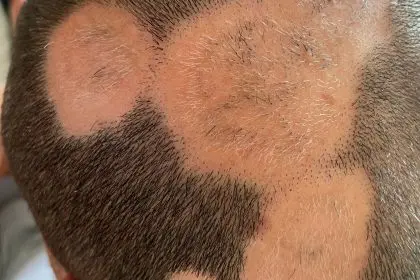Living in space might seem like the ultimate out-of-this-world experience, reserved for astronauts and sci-fi movies. But beyond the stunning celestial views and weightlessness, space travel holds some surprising health benefits that could revolutionize medicine and improve life on Earth. While long-term stays in space pose challenges, ongoing research aboard the International Space Station (ISS) reveals fascinating adaptations in the human body, offering unique insights into health and disease.
Before we blast off into the benefits, it’s important to remember that space isn’t exactly a health spa. Due to microgravity and radiation exposure, astronauts grapple with bone loss, muscle atrophy, and weakened immune systems. However, these challenges unveil hidden strengths and adaptations, paving the way for potential medical advancements.
So, buckle up and prepare for liftoff as we explore the seven unexpected health benefits of living in space:
1. Enhanced Bone Health: Imagine building stronger bones without lifting weights. In this area, microgravity removes the constant stress on bones, leading to bone loss at an alarming rate. But here’s the twist: this process triggers the body to activate special bone-building cells, offering clues to combat osteoporosis and bone diseases on Earth.
2. Improved Cardiovascular Health: On Earth, gravity pulls blood down, placing extra strain on the heart. However, the heart works less in space, potentially leading to a more robust and more efficient cardiovascular system. Studying these adaptations could aid in developing treatments for heart diseases like congestive heart failure.
3. A Boosted Immune System: Space travel exposes astronauts to a unique microbial environment. Surprisingly, research suggests their immune systems become more responsive and adaptable, potentially offering insights into treating autoimmune diseases and allergies.
4. Faster Wound Healing: In microgravity, wounds tend to close faster due to reduced inflammation and improved blood flow. This phenomenon could revolutionize wound healing treatments on Earth, particularly for chronic wounds associated with diabetes or age.
5. Muscle Repair and Regeneration: Similar to bones, muscles also weaken in space due to inactivity. However, studies show astronauts retain muscle strength better than expected, possibly due to enhanced muscle repair mechanisms. Understanding these mechanisms could aid in developing therapies for muscle-wasting diseases.
6. Ageing Research: Spaceflight acts like an accelerated aging process, impacting bone, muscle, and immune function. By studying these changes, researchers gain valuable insights into the aging process on Earth, potentially leading to interventions that promote healthy aging.
7. Drug Discovery and Development: The unique space environment creates opportunities to test and develop new drugs in ways not possible on Earth. Microgravity allows for different studies of drug interactions and formulations, potentially leading to faster and more efficient drug development.
Beyond the individual benefits, space research fosters international collaboration and technological advancements. The knowledge gained from studying human health in space has applications for astronauts and everyone on Earth. It pushes the boundaries of medical research, potentially leading to improved diagnostics, treatments, and even cures for various diseases. Imagine a world where we can prevent bone loss naturally, heal wounds faster, and develop more effective drugs – all thanks to the insights gleaned from our celestial neighbors.
The final frontier isn’t just about exploration; it’s about pushing the boundaries of human knowledge and innovation. The journey to understand the human body in space might seem like a giant leap, but the potential rewards for life on Earth are truly astronomical. So, the next time you gaze at the stars, remember: the health of our future might lie amongst them. As we continue to explore the cosmos, the discoveries made in space could hold the key to unlocking a healthier and more vibrant future for all of humanity. It’s a future where space isn’t just a distant dream but a potential solution to some of our most pressing health challenges. And that, indeed, is a reason to reach for the stars.
This story was created using AI technology.













